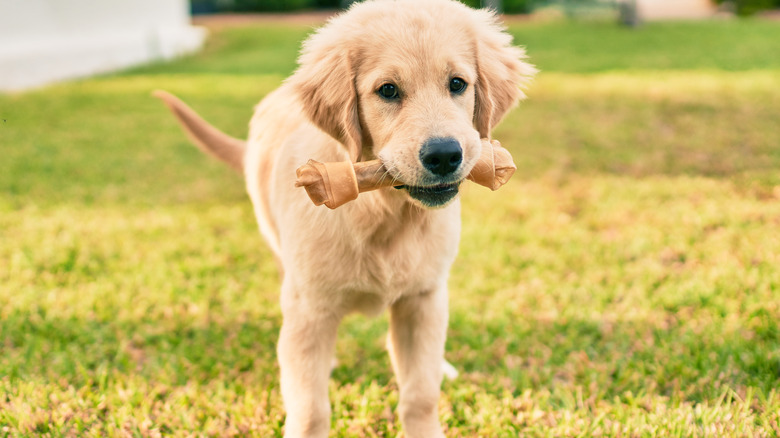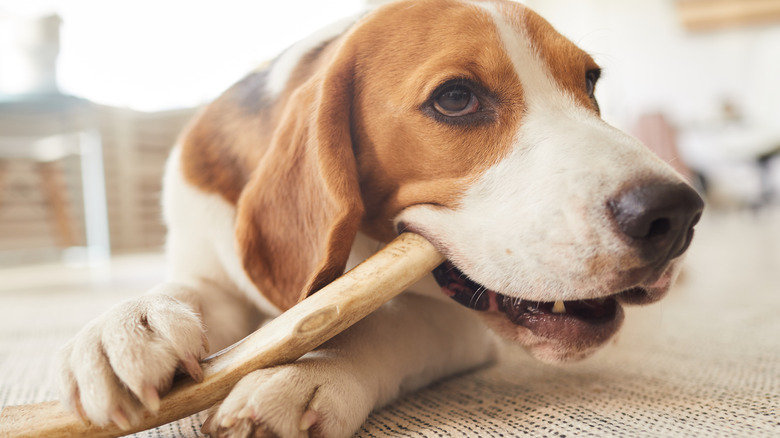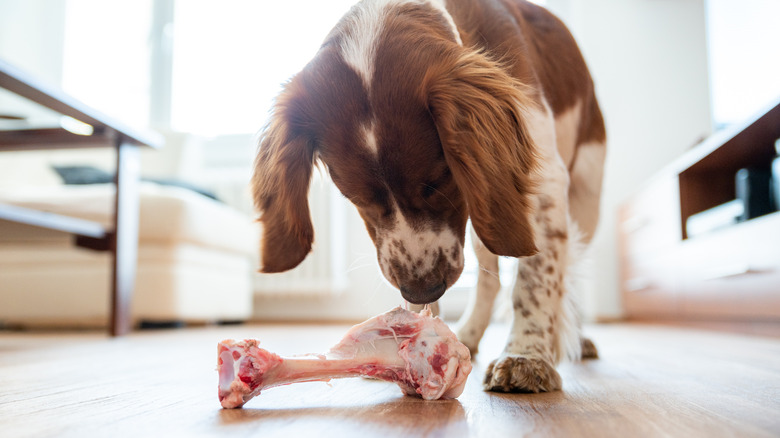Here's What You Should Know Before Giving Your Dog A Bone
Dogs and bones are two things that seem to go hand in hand and there have even been children's songs written about the two. They are sometimes your dog's favorite treat that they gnaw at for hours at a time, and yes, really do bury in the backyard, if given the chance. But don't think your dog can be given any bone that's left over from anything you just ate. Some bones can be dangerous to dogs for various reasons and there even bones that can be fatal.
According to the American Kennel Club, bones are something that not only give your dog chewing pleasure, it can also satisfy their voracious appetites. Gnawing at the right kind of bone can also keep a dog's teeth and gums healthy and clean by stimulating saliva production. In addition, when your dog has a bone to chew on, they are less inclined to chew or scratch at your furniture or other things in your home. But always proceed with caution when it comes to dog bones and learn the do's and don'ts before you let your favorite furry friend have fun with a bone.
Never give your dog cooked bones
While it may seem tempting to finish a nice T-bone steak and toss the bone to your ever-attentive dog who seems to be waiting anxiously for scraps, don't do it — no matter what kind of bone.
Most dog owners know to never give their dog a chicken bone, but even a cooked steak bone can cause injury or even a fatality. Cooked bones are softer than raw bones and can splinter in a dog's mouth or even as they are trying to digest a bone. While splintering in the mouth can cause scratches on the mouth and tongue, as well as broken teeth, a splintered bone that your dog swallowed can pierce an internal organ. According to Rover.com, cooked bones can also cause an intestinal blockage.
Instead of cooked bones, you can give your dog raw bones from fresh meat, but you must also proceed with caution in that situation, as well.
The do's and don'ts of giving your dog real bones
While raw bones are less apt to crack and splinter than cooked bones, there are still some fresh raw types that do, including pork bones and rib bones, so stay away from them. In addition, never give your dog a bone that's small enough for your dog to swallow without any chewing at all.
If you want to give your dog the special treat of a real bone, a cow or bison bone is just fine, according to Rover.com. You can get them from local farms or other stores that use locally-sourced meat and store the bone in the freezer to ensure any food residue will be safe. Along the same lines, don't let your dog have the same raw bone for too long and throw the bone out after a few hours. The AKC recommends an alternative way to keep bones from causing a food-borne illness. Take it away every 15 minutes or so and put it back in the fridge. Then, after a few days, you should dispose of it.


